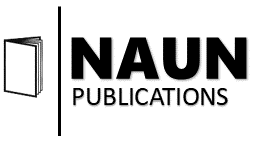Stochastic Machine Learning Models for Mutation Rate Analysis of Malignant Cancer Cells in Patients with Acute Lymphoblastic Leukemia
Authors: Martsenyuk Vasyl, Abubakar Sadiq, Sverstiuk Andriy, Dimitrov Georgi, Gancarczyk Tomasz
Abstract: Acute lymphoblastic leukemia, a pervasive form of the carcinogenic disease, is a lethal ailment subjecting numerous pediatric patients globally to terminal conditions. is a rapidly progressive condition, that exposes patients to conditions including Tumor Lysis Syndrome which often occurs early after the induction chemotherapy, contemporary research focuses primarily on the development of techniques for the early diagnosis of Acute Lymphoblastic Leukemia (ALL), leaving a gap within the literature. This study examines the application of machine learning techniques for the prognosis the mutation rate of cancer cells in pediatric patients with Acute Lymphoblastic Leukemia using clinical data from patients with ALL, who have undergone tests using Next Generation Sequencing (NGS) technology. An overview of the clinical data utilized is provided in this study, with a comprehensive workflow encompassing, data analysis, dimensionality reduction, classification and regression tree algorithm (CART), and neural networks. Results here demonstrate the efficiency with which these methods are able to target and decipher cancer cell proliferation in pediatric patients suffering from acute lymphoblastic leukemia. Valuable insights into relationships between key factors and conversion rates were also derived through data mining. However, tree classification and regression algorithms and neural networks used herein indicate the flexibility and the power of machine learning models in predicting the recurrence of cancer cells accurately. This study’s results affirm previous findings thus giving clinical proof for mutational drivers among pediatric patients having Acute Lymphoblastic Leukemia. This adds value to results by providing an applicable utility in medical practice. Principally, this study denotes a substantial advancement in leveraging machine learning workflows for mutation rate analysis of cancer cells. By appraising clinical corroboration, emphasizing the explain ability and interpretability, and building upon these findings, future research can contribute to improving patient care and results in the field of Leukaemia.
Pages: 1-12
DOI: 10.46300/9106.2024.18.1
International Journal of Circuits, Systems and Signal Processing, E-ISSN: 1998-4464, Volume 18, 2024, Art. #1
PDF DOI XML
Certification
